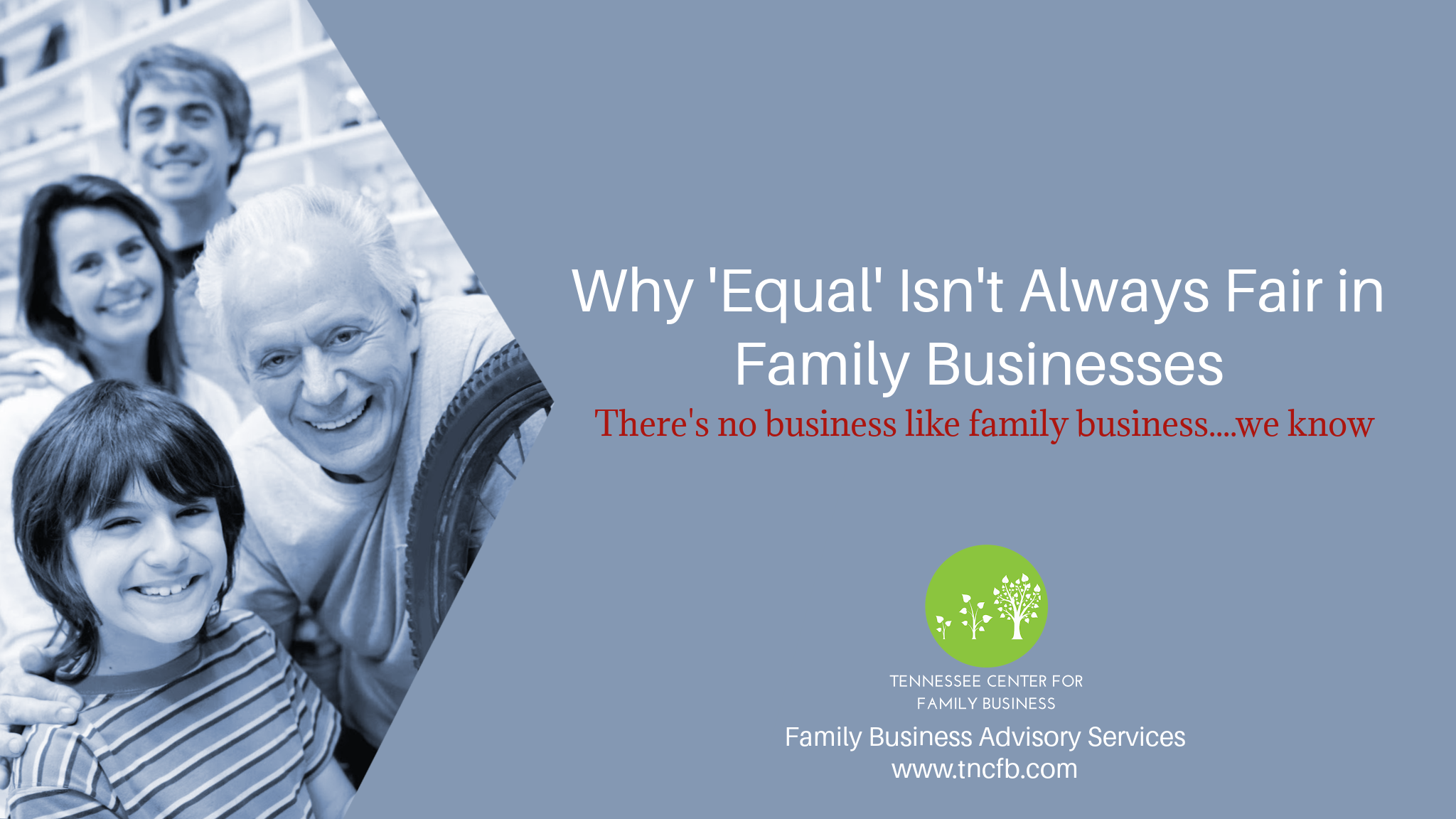Family businesses thrive on relationships, shared history, and a common vision. But when it comes to decision-making and succession planning, the idea of treating everyone equally can create more problems than solutions. Fairness—not equality—should be the guiding principle in family enterprises. Otherwise, you risk inefficiencies, resentment, and even business failure. Let's dive into why equality isn’t always fair and how you can navigate these challenges.
Equality vs. Fairness: The Key Distinction in Family Business
At first glance, equality and fairness seem interchangeable. But in a family business, treating everyone the same regardless of their skills, contributions, or commitment can do more harm than good.
Equality means giving everyone an identical share of ownership, decision-making power, or financial benefits. But fairness takes individual circumstances into account—recognizing effort, experience, and capability. In a family business, fairness ensures that roles and rewards align with what each person brings to the table.
Understanding this distinction is crucial to maintaining harmony, productivity, and long-term success. Now, let’s explore what happens when businesses prioritize equality over fairness.
When Equality Backfires in Family Business
Splitting ownership equally among siblings may seem fair on paper, but what if one sibling is deeply involved while another is disengaged? The business suffers when decision-making power isn’t aligned with effort and expertise. Likewise, paying family members the same salary regardless of their role, skill level, or performance can kill motivation. If one person is driving growth while another coasts along, resentment will build. Assigning leadership roles based on birth order or equal distribution instead of capability can also stifle business growth. A business needs strong, competent leadership—not just someone who happened to be born first.
The Fallout: Strained Relationships and Stagnant Growth
When a business prioritizes equality over fairness, it can lead to family conflicts, as resentment grows when hard work goes unrewarded and free riders reap the benefits. It can also result in business stagnation—without recognizing and leveraging individual strengths, the company struggles to innovate and grow. Additionally, there is financial risk; if leadership or ownership is handed out based on family ties rather than competence, poor decisions can jeopardize the entire business. To avoid these pitfalls, family businesses need to take a more strategic approach—one that balances family harmony with business success.
Strategies to Prioritize Fairness in Succession Planning
Matching roles to skills rather than birth order is key; leadership and responsibilities should be assigned based on merit, not just because someone is next in line. Compensation should reflect effort, results, and value added to the business, not just family ties. Open communication through regular family meetings fosters transparency, allowing concerns and expectations to be addressed before they escalate into conflicts. Seeking outside expertise from a neutral third-party advisor can also help mediate discussions and ensure objective decision-making.
Real-World Success Stories
Take the Smith Family Corporation, a third-generation manufacturing company. Instead of an automatic equal split, they implemented a structured development plan for family members. Leadership roles were awarded based on experience and performance, not entitlement. The result? A thriving business with motivated family members contributing in meaningful ways.
Or consider the Johnson Family Farm, where multiple family branches contributed differently to the farm’s success. Instead of dividing profits equally, they developed a system that factored in labor, investment, and risk. This approach ensured fairness and kept the family united.
Conclusion
If you’re facing tough decisions about succession planning, ownership distribution, or family compensation, remember: fairness beats blind equality every time. It preserves relationships, keeps your business competitive, and ensures long-term success.
If you are asking yourself, why does succession planning have to be so darn difficult, contact us today to schedule a FREE, no-obligation, session to set you and your family on the path for a successful transition and building a lasting family legacy.


